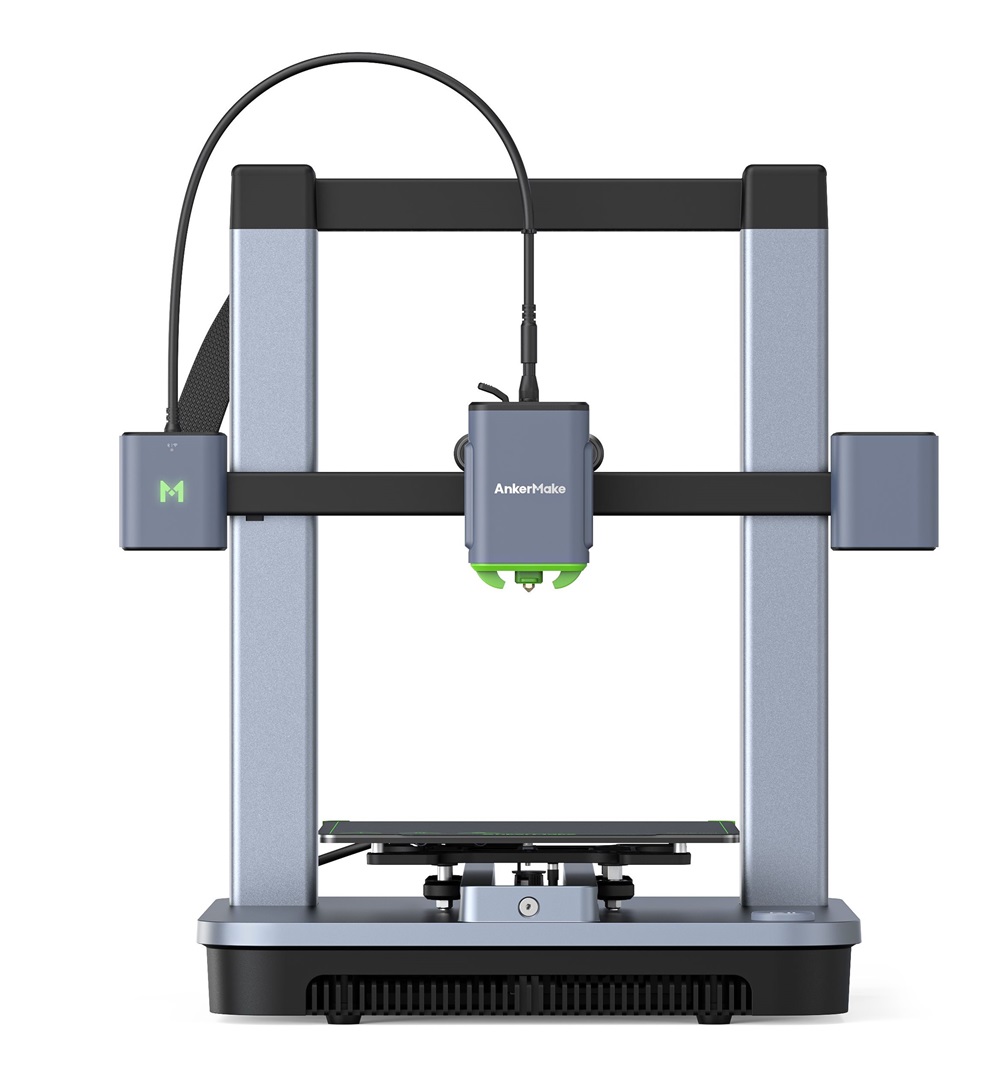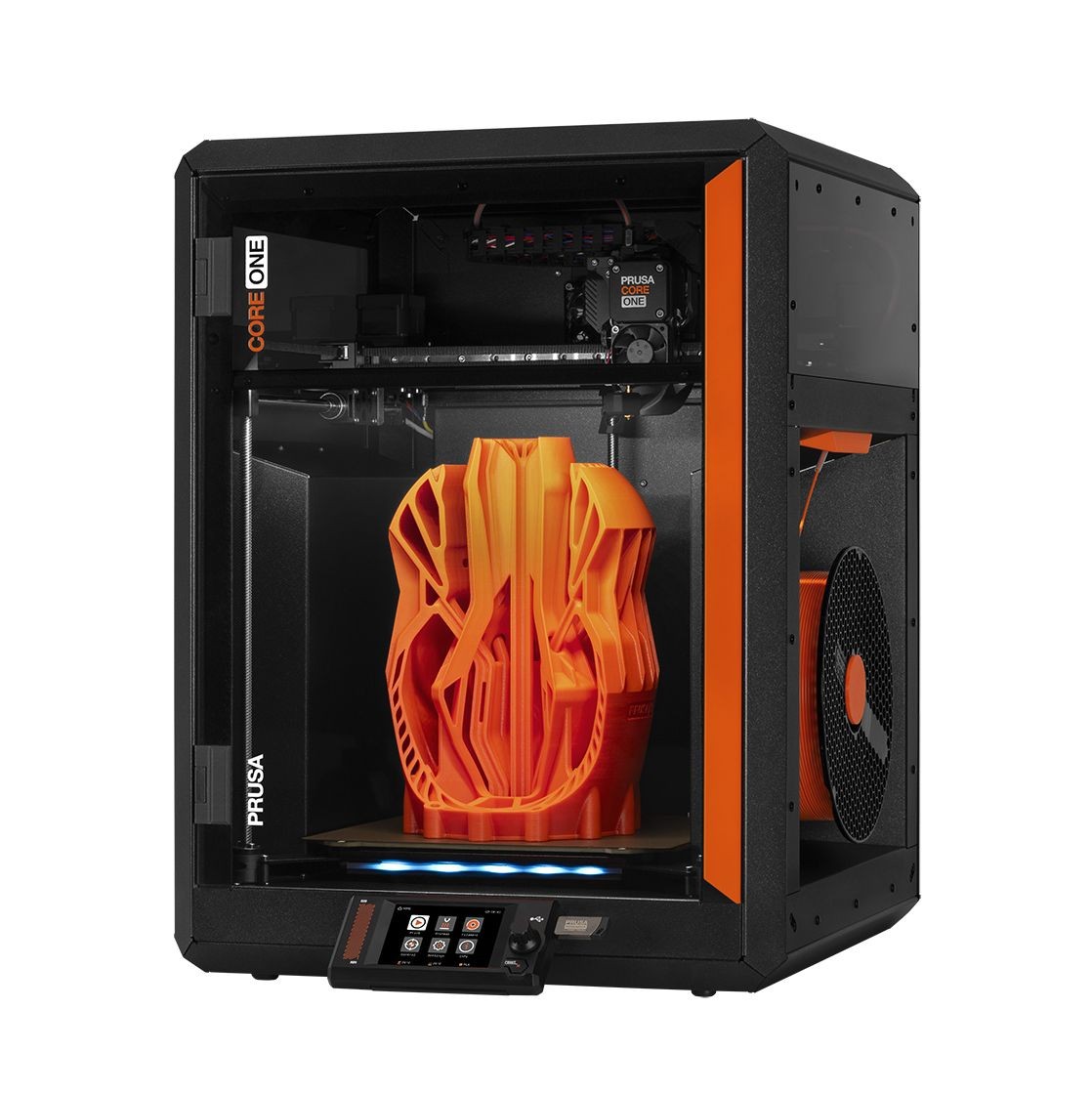Compare M5C vs Core One
Comparison between the best 3D printers
Choose the best 3D printer at the best price. The cheapest 3D printers are here.
Buy a 3D printer here with 3D Fila.
 |
 |
|
| Model | M5C[BUY M5C] |
Core One |
| Printing Material | Filament | Filament |
| Buy Filament for AnkerMake M5C | Buy Filament forPrusa Core One | |
| Estimated price | $399,00 | $1200,00 |
| Manufacturer | AnkerMake | Prusa |
| Release Year | 2023 | 2025 |
| Print Volume [mm] | 220x220x250 | 250x220x270 |
| Printer Size [mm] | 466x374x480 | 385x340x620 |
| Weight [kg] | 9,6 | 14 |
| Power Loss Recovery | YES | YES |
| Enclosed printer | NO | YES |
| Bed Leveling | Automatic | Automatic |
| Filament End Sensor | YES | YES |
| Bed type | Heated | Heated |
| Power supply system | Direct Drive | Direct Drive |
| Standard nozzle | 0,4 | 0,4 |
| Maximum Nozzle Temperature [°C] | 300 | 300 |
| Maximum Bed Temperature [°C] | 100 | 120 |
| Maximum printing speed [mm/s] | 500 | 500 |
| Filament holder | YES | YES |
| Camera for supervision | NO | NO |
| Recommended filaments | PLA, PETG, TPU, ABS, PA, PLA-CF, PETG-CF, PA-CF | PLA, TPU, TPE, HIPS, ABS, PETG, WOOD, PC, PA, PVA, ASA |
| Recommended slicers | AnkerMake Studio (macOS, Windows), Simplify3D, Ultimaker Cura, PrusaSlicer | Cura, Prusa Slicer, Orca |
| Maximum Resolution [mm] | 0,1 | 0,01 |
| Processor | xBuddy 32 bit | |
| Display | Touchscreen 3,5'' | |
| Power Supply | 350 W | 240 W |
| Connectivity | Wi-Fi, USB-C, Bluetooth | SD |
| Operating systems | Windows, Linux e Macbook | Windows, Linux e Macbook |
| Date of registration in the system | 2024-09-11 | 2024-11-27 |
| Release date | 2023 | 2025 |
| Extra features | The AnkerMake M5 printer stands out for its impressive print speed, reaching up to 500mm/s. It features AI print monitoring, an integrated camera for creating timelapses, auto-leveling bed with pressure sensor, direct extruder, flexible PEI-coated build plate, and Wi-Fi and USB-C connectivity. Assembly is quick and easy, and the printer is designed to deliver high print quality and ease of use. | The Prusa Core One is a CoreXY 3D printer featuring a robust steel frame, a 3.5" touchscreen, and a heated chamber for technical filaments. It offers 360° cooling for improved print quality and supports upgrades from the MK4S model. With a compact design, a print volume of 270x250x220 mm, and compatibility with the MMU3 for multi-color printing, it stands out for its ease of maintenance, precision, and speeds up to 260% faster than the MK3S+. |
| Support for multiple colors and materials (AMS and CFS) | NO | YES |
Notes * |
||
| Cost-benefit | 7 / 10 | 7 / 10 |
| Hardware | 2.8 / 10 | 5.4 / 10 |
| Tela | . | . |
| Print volume | 3 / 10 | 3 / 10 |
| Performance | 4 / 10 | 4 / 10 |
| [BUY M5C] |
Conclusion |
| In conclusion, choosing between the AnkerMake M5C and the Prusa Core One involves weighing various factors, including price, features, and intended use. The AnkerMake M5C, priced more affordably, boasts impressive printing speeds, a user-friendly design, and a range of filament options, making it suitable for beginner to intermediate users who value flexibility and ease of operation. Its lack of an enclosed design may be a consideration for those printing materials that require temperature control, but its rapid print capabilities and automatic bed leveling cater well to users looking for speed and convenience. On the other hand, the Prusa Core One, while significantly more expensive, offers advanced features such as an enclosed printing environment, enhanced cooling systems, and compatibility with multi-material upgrades. This printer is tailored for more serious users seeking precision, especially in multi-color projects, and those who require robust build quality for technically demanding materials. Ultimately, your choice should be informed by your budget and specific printing needs. The M5C serves well for general printing tasks, while the Core One is a more specialized tool designed to deliver higher quality results, particularly when working with diverse materials and intricate designs. Both printers receive a similar cost-benefit rating, though their target audiences and applications differ significantly. |

